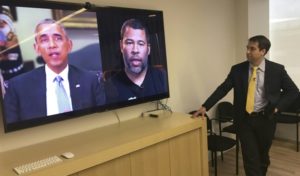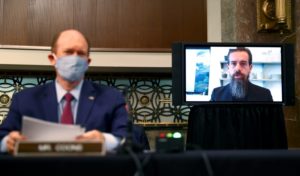Medical AI Regulators Should Learn from the Global Financial Crisis
In regulating AI in medicine, FDA should exercise care in implementing a principles-based framework.
Countering Bias in Algorithmic Hiring Tools
Regulators struggle to counter bias in hiring because algorithms reproduce existing inequalities.
Combating Counterfeit Goods in the Age of E-Commerce
Experts explore regulatory approaches to detect and decrease the online sale of counterfeit goods.
Responding to Deepfakes and Disinformation
Experts assess ways that regulation might respond to the problems of deepfakes and disinformation.
Can Municipal Broadband Networks Close the Digital Divide?
Local governments may be able to provide better internet access than telecom companies.
The Future of Working from Home
Experts address regulatory implications of the transition to remote work.
What Is the Future of Social Media Regulation?
Justice Thomas signals the potential for regulation of social media platforms and their power over speech.
Maintaining Local Values in the Face of Digital Platforms
Academics argue that city authorities could cooperate with tech companies to align their values.
Addressing Big Tech’s Power Over Speech
Antitrust has a role in addressing the considerable power social media companies possess over speech.
The Dawn of a New Era for Copyright Online
Recent legislation that targets illegal digital streaming provides a template for digital copyright law.
The Cowboy State Tames Bitcoin’s Regulatory Wild West
Wyoming’s first cryptocurrency bank may herald a new era of U.S. cryptocurrency regulation.
Finding Common Rules to Wrangle Big Data
Scholar argues for unified rules of data governance to achieve fairness, efficiency, and stability.












